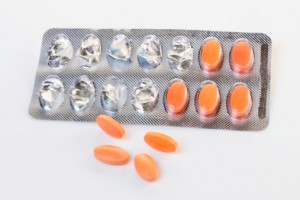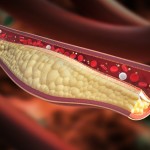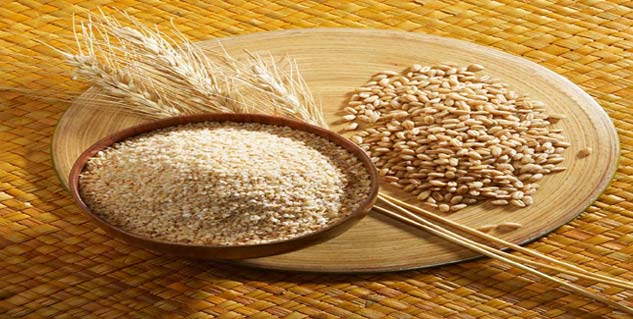Statins usage increasing among seniors
 If you have high cholesterol your doctor has probably either spoken to you about statins or prescribed them. Statins are a type of medication which works to reduce cholesterol levels. They work by blocking the action of the chemical in the liver which is necessary to produce cholesterol.
If you have high cholesterol your doctor has probably either spoken to you about statins or prescribed them. Statins are a type of medication which works to reduce cholesterol levels. They work by blocking the action of the chemical in the liver which is necessary to produce cholesterol.
Cholesterol is naturally found in our body, but we can also attain more from the foods we eat. There are two types of cholesterol: LDL and HDL. LDL is commonly referred to as the “bad” cholesterol while HDL is the “good.” LDL is the type of cholesterol which sticks to the walls of the arteries, making it more difficult for blood to pass through. Our livers produce cholesterol as well, but if a person has too much cholesterol statins can work to inhibit the production of cholesterol from the liver.
Many American seniors are on statins, but new evidence suggests nearly a third of them take statins without evidence of results. The study, published in JAMA Internal Medicine, used data collected between 1999 and 2012 from the Medical Expenditure Panel Survey.
The survey consisted of responses from 13,099 individuals. Researchers saw a rise in the rates of vascular disease from 27.6 percent to 43.7 percent over the course of the study. Researchers noted that although there was little evidence to support the use of statins, there was an increase in the number of seniors using them.
Statin use may be prescribed as a prevention method in those without vascular disease and with no history of coronary heart disease, stroke or peripheral vascular disease. If a person does have vascular disease, statins may be used as secondary prevention.
The researchers conducted some interviews which revealed an increase in statin use among seniors. Furthermore, statins used to lower cholesterol are being primarily employed to lower risk of cardiovascular disease, but the when, whom and how for guidelines is still very unclear.
Side effects of statins
 Like many medications statins run their own risk and can produce unwanted side effects. Side effects of statins include:
Like many medications statins run their own risk and can produce unwanted side effects. Side effects of statins include:
- Headache
- Difficulty sleeping
- Flushing of the skin
- Muscle aches, tenderness or muscle weakness
- Drowsiness
- Nausea and vomiting
- Abdominal cramping or pain
- Bloating or gas
- Diarrhea
- Constipation
- Rash
Additionally, many statin labels raise the risk of memory loss, mental confusion, high blood sugar and type-2 diabetes. Lastly, if you’re on other medications for other ailments, statins may interact negatively with those as well.
More serious side effects may include myositis (an inflammation of the muscles which can increase injury), elevated levels of CPK (which can lead to muscle pain and weakness) and rhabdomyolysis (which is extreme muscle inflammation and damage).
Tips to lower cholesterol levels naturally without statins
If you’re concerned about your cholesterol and want to avoid the side effects of statins, there are natural means to lower your cholesterol.
- Eat heart-healthy foods: Monounsaturated and unsaturated fat, eliminate trans and saturated fat, consume foods with omega-3, eat more soluble fiber
- Exercise
- Don’t start smoking or quit smoking
- Maintain a healthy weight or lose excess weight
- Consume alcohol in moderation
Lifestyle changes can pose successful as a natural means to lower cholesterol. If you have concerns about statins – either you’re taking them or you were thinking about taking them – always speak with your doctor to know the risks.
5 things you need to know about your cholesterol
Like blood pressure, our cholesterol readings are quite important as we age. It’s important to know these numbers because if uncontrolled, or if you have too much of the “bad” kind, it can lead to serious health consequences. Continue reading…
-
Easy Weight Loss Small Steps That Make A Big Difference
If you have a significant amount of weight to lose ? say 20 pounds or
-
Green Tea Diet, Weight Loss and Body Vitality
Due to the inactive lifestyle some peopl
-
Sleep paralysis: Causes, symptoms and how to cope
Sleep paralysis can be a terrifying state of consciousness; not
-
What Is the Best Antidepressant for Weight Loss
With depression more and more common place in the 21st century, antide
-
Best Fat Burners
You will find numerous methods to lose fat. Those who have spent cons
-
Diets For Extreme Weight Loss
Losing weight has become such a priority nowadays. Obesity is a silent
- DON'T MISS
- Food Supplements To Reduce Stomach Fat
- 3 Top Tips For Belly Flab Burning
- How To Lose Weight This Week
- Is an All-Protein Diet Really Good for You?
- Tips To Jump Start Fast Weight Loss Without Exercise
- Discover Your Food Allergies And Accelerate Weight Loss
- Exercise More And Eat Less Why Is It So Difficult
- The Consequences of Being Fat
- The Most Important Fat Loss Tip You Probably Arent Thinking About
- Pole Dancing Exercise Routines - Useful Facts You Might Not Know




